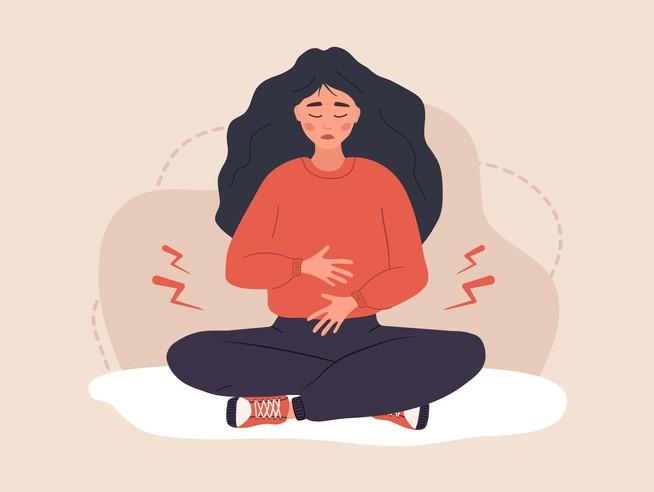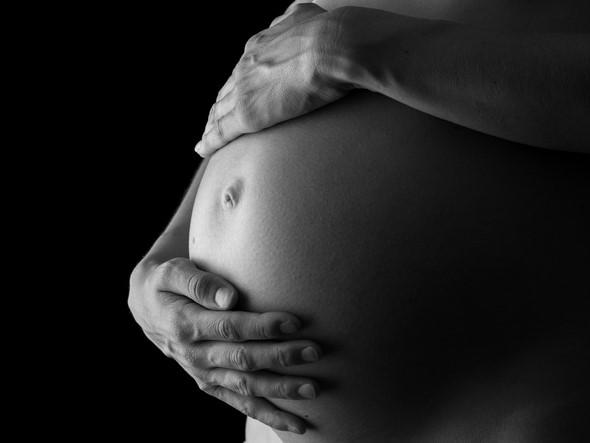
Breaking barriers for women: closing the gender health gap in academia

Who’d have a uterus? The female body brings with it a host of health issues – from menstruation and menopause to pregnancy and pregnancy loss. The impacts of these conditions are often minimised or treated as taboo but can be debilitating, and most people with a uterus will be impacted by at least one of these.
The impact of women’s health issues is exacerbated by myths, social stigma and misdiagnosis, particularly in patriarchal spaces such as academia. Some conditions – such as premenstrual syndrome (PMS), of which severe symptoms are experienced by at least a third of women – are openly ridiculed. As a result, women often feel ashamed of or embarrassed by their conditions, delaying treatment and struggling in isolation. Chronic conditions such as endometriosis – for which the average time to diagnosis is 7.5 years – may be endured for years without medical proof. As such, little data exists on the true economic cost of gender-specific health issues in the workplace.
- Breaking barriers for women: how to build effective parental leave
- Breaking barriers for women: enough talking, time for action
- Women in academia are doing too much non-promotable work – it has to stop
For women in academia, the onset of gender-specific health issues often coincides with critical stages in the career pipeline. Postgraduate or postdoctoral researchers face heightened financial and job insecurity, challenges accessing paid leave (particularly for international students) or extensions when on fixed-term contracts and a lack of clarity over who to go to in the university for advice.
Starting a family often collides with the time when women are establishing themselves as independent researchers and, as such, more women are choosing to delay having children, which increases the risk of having to deal with infertility or miscarriage. At later career stages, when women begin to take up senior leadership roles, they do so often while battling severe menopausal symptoms including sleep deprivation, fatigue and low mood. Unsurprisingly, recent data show that women’s health problems negatively impact their earnings, progression and likelihood of continuing work – factors that could be driving the loss of women from senior academic positions.
If we want to create an academic environment in which women can thrive, we need to tackle both the stigma around women’s health and the academic systems that fail to support female bodies in the workplace. We propose three key areas for progress:
1. Tackle taboos
Less than half of women ever seek help for their symptoms due to stigma and discomfort. We must foster an open culture in academia where gender-specific health issues can be acknowledged and respected. One approach is to facilitate open conversations. Initiatives such as the Menopause Cafe can create dedicated spaces for sharing experiences of common (yet seldom discussed) health issues, providing support between peers while increasing awareness, acceptance and empathy among colleagues.
We must recognise, however, that many women do not feel comfortable sharing their personal details openly. Indeed, one early career contributor to this article chose to remain anonymous because of concerns for her future career. We must strive for a middle ground where problems can be shared with colleagues where necessary (from line managers to mentees) without the need to reveal specific details. Such an approach will require the academic community to get comfortable with nuance and subjectivity and to develop new management strategies based around mutual respect, trust and support rather than paper evidence.
2. Support people in work
Awareness of the gender health gap and women’s health is growing, but university policies lag behind. Access to flexible/part-time working and paid sick leave can be valuable, but it is difficult to step away from an academic role. With academic progression so rigidly dependent on productivity-based metrics, those who are able to work more hours are ultimately rewarded. Building slack into academic systems, creating a buffer for people who need to take leave or reduce their working hours, is one way to alleviate these issues. Formally accounting for personal circumstances and reduced working hours in career progression and promotion decisions is also essential.
However, taking time off is not always the best solution. Women’s reproductive health issues typically recur monthly, or unpredictably, so fixed periods of leave rarely solve the problem. For women who are leading research groups and already managing soaring academic workloads, taking time off can be stressful, exacerbating health issues further. A more sustainable and beneficial approach is to enable and support people to manage their condition while continuing to deliver high-quality work.
3. Building for diverse bodies
If women are to thrive in academia alongside managing specific health problems, we need to ensure that they have access to comfortable workspaces that enhance their ability to perform. A crucial first step is to incorporate gender-specific health issues into workplace risk assessments, focused on mitigating the impact of academic working environments (for example, menstruation during fieldwork).
Reasonable adjustments should be made for accessibility, including simple but transformative accommodations such as providing adjustable seating for seminar speakers and laboratory workers and ensuring that appropriate temperature regulation is available in all workspaces. Academic institutions should undertake a formal review of existing HR and facilities policies with women’s health in mind, and all staff with management duties should be educated on common gender-specific health issues. Signing up to a dedicated programme such as Endometriosis UK’s “Endometriosis-friendly employer scheme”, and introducing formal guidance such as “miscarriage policies”, would ensure that practice was improved and maintained across the board. The benefits of this would be far-reaching, not only increasing the accessibility and inclusivity of academic spaces for women but for anyone with a disability or medical condition.
The number of women in the workforce at all levels of seniority is growing. As such, more work needs to be done to eliminate any feelings of shame or stigma when discussing gender health issues that impact productivity in the workplace. Progress will depend on universities facilitating open discussions and educating managers. This will arm universities with the data and management strategies required to create happier workforces and, ultimately, increase recruitment and retainment of currently under-represented talent.
Nicola Hemmings is Royal Society Dorothy Hodgkin research fellow at the University of Sheffield.
Ellie Harrison is NERC independent research fellow at the University of Sheffield.
Jo L. Fothergill is reader in microbiology at the University of Liverpool.
Kayla C. King is professor of evolutionary ecology at the University of Oxford.
Siobhán O’Brien is assistant professor in microbiology at Trinity College Dublin.
Susan E. Johnston is Royal Society university research fellow at the University of Edinburgh.
Tiffany B. Taylor is Royal Society Dorothy Hodgkin senior research fellow at the University of Bath.
This article was enhanced by the contribution of an early career researcher who wishes to remain anonymous.
If you found this interesting and want advice and insight from academics and university staff delivered direct to your inbox each week, sign up for the THE Campus newsletter.


